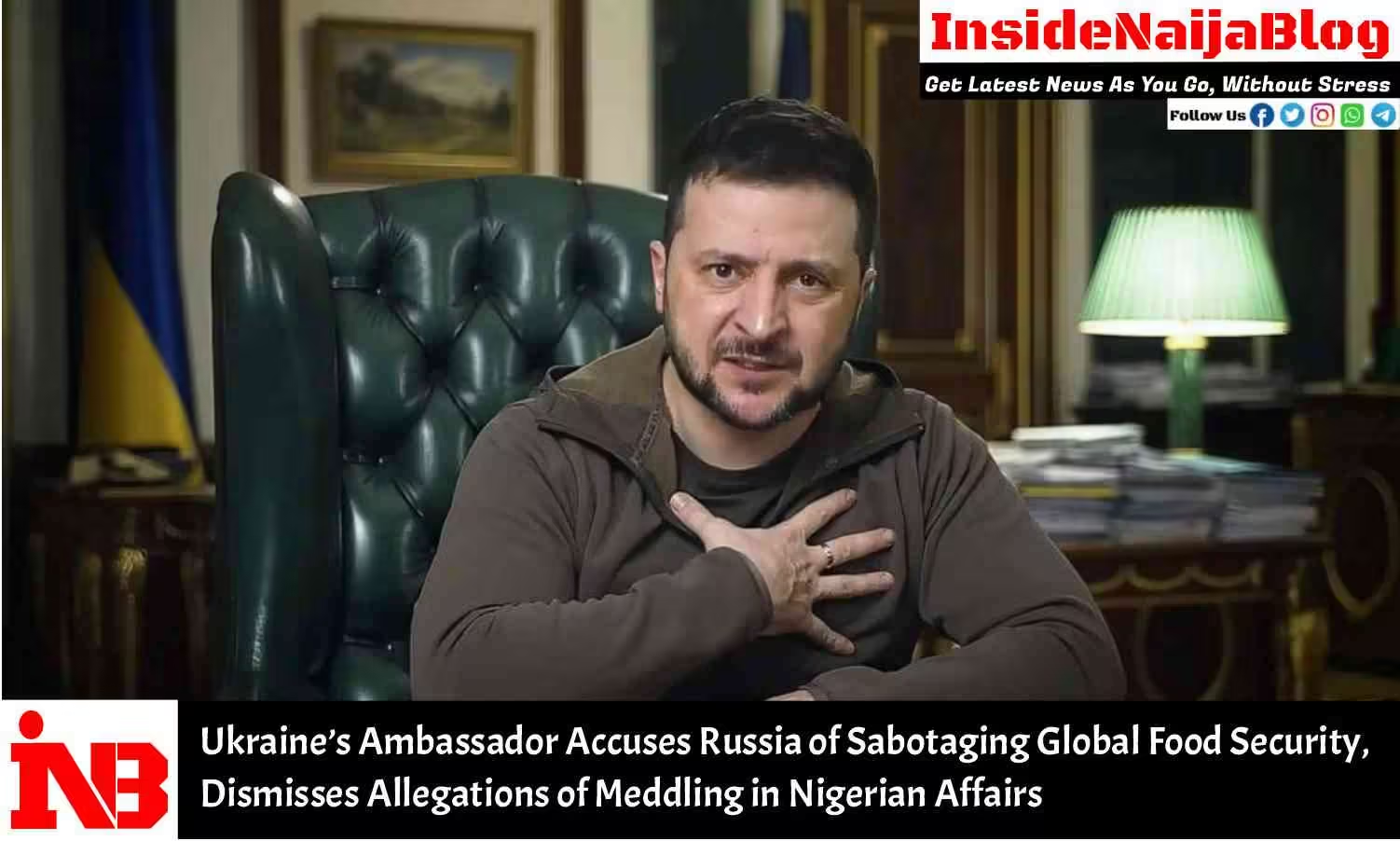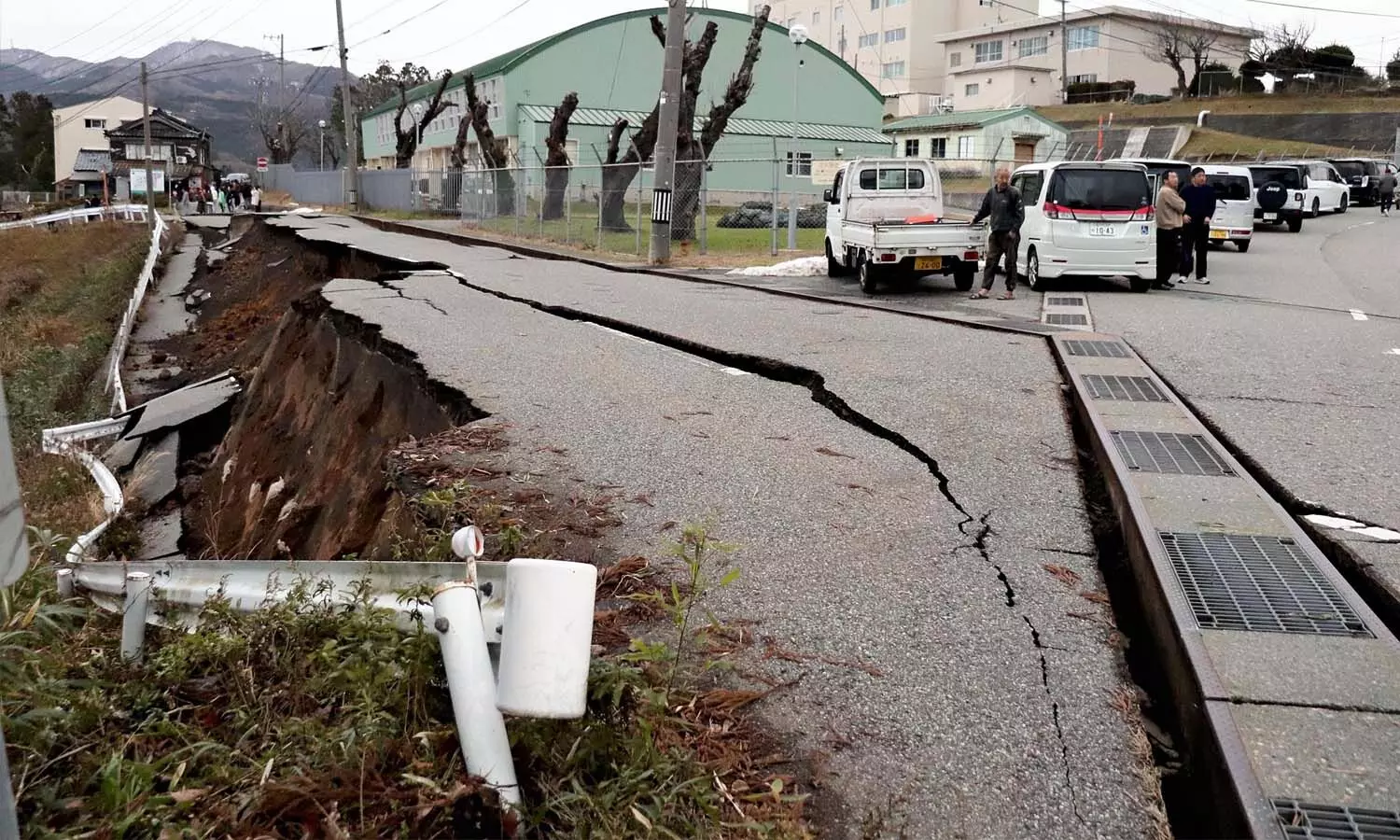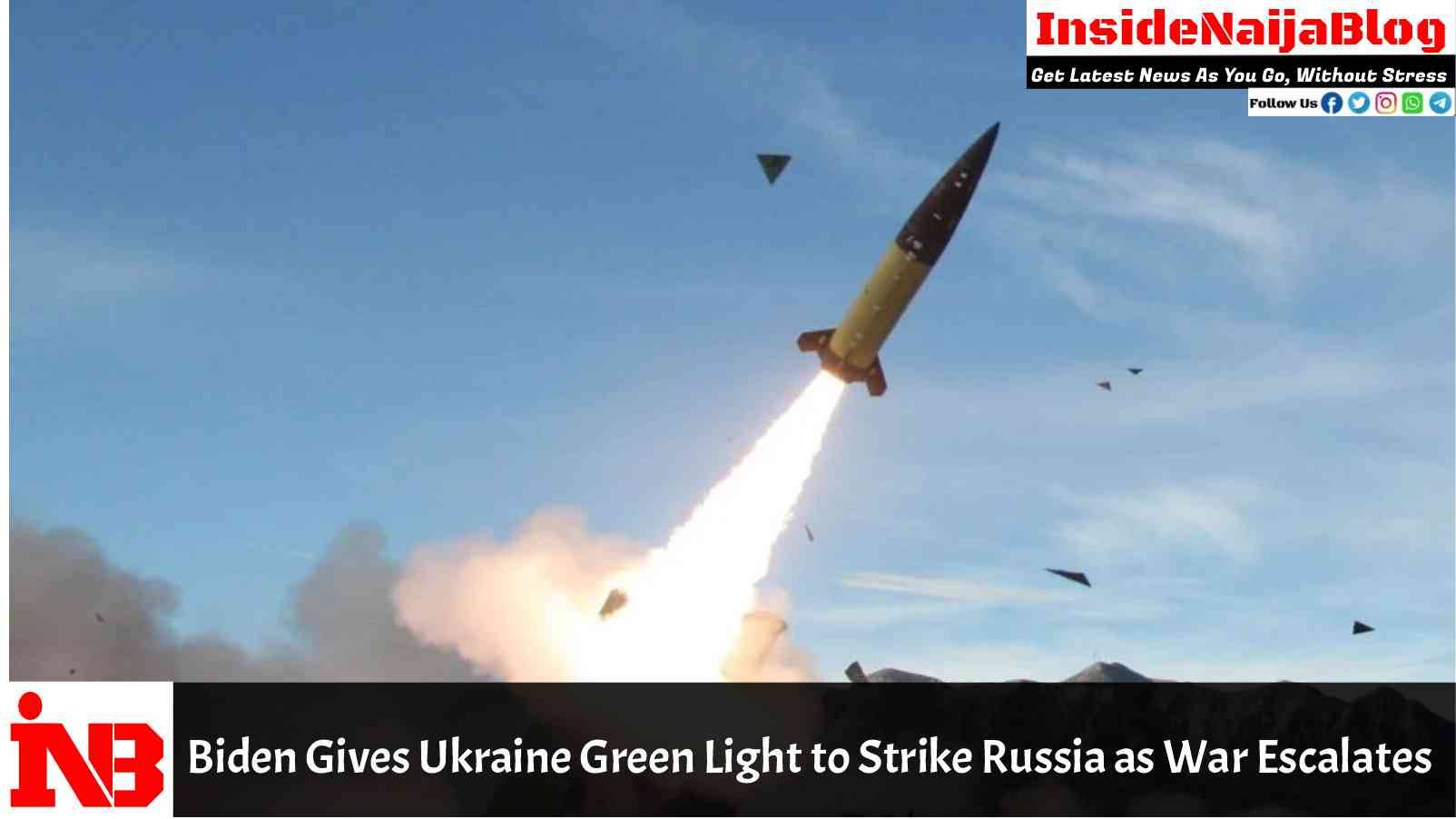In a strongly worded statement, Ukraine’s Ambassador to Nigeria, Ivan Kholostenko, has condemned Russia’s withdrawal from the Black Sea Grain Initiative, accusing Moscow of deliberately undermining international food security. According to Kholostenko, Russia’s actions have severely impacted global grain supplies, exacerbating hunger crises in vulnerable countries.
Kholostenko’s comments come in response to recent claims made by the Russian government, which accused Ukraine, the United States, and Britain of sponsoring protests in Nigeria to damage diplomatic relations between Nigeria and Russia. These allegations were publicly addressed by Yury Paramonov, Press Secretary of the Russian Embassy in Nigeria, who suggested that Ukraine was meddling in Nigeria’s internal affairs to shift blame onto Russia for political unrest.
In a forceful rebuttal, Kholostenko dismissed the accusations as baseless and instead turned attention to Russia’s global actions. “The truth is that the Russian regime is fully responsible for the ongoing instability on the international stage, particularly in terms of global food security,” Kholostenko said, referring to Russia’s exit from the Black Sea Grain Initiative, which had previously allowed the export of Ukrainian grain through the Black Sea despite the ongoing conflict.
Russia’s withdrawal from the agreement, according to Kholostenko, was a deliberate act of sabotage, aimed at cutting off Ukraine’s vital grain exports and causing widespread food shortages. The initiative, brokered by the United Nations and Turkey in 2022, had been crucial in stabilizing global food prices, particularly in African nations reliant on grain imports.
The Larger Conflict: Russia’s Aggression and Atrocities in Ukraine
The Ukrainian ambassador did not stop at food security issues. He went on to remind the international community of Russia’s invasion of Ukraine, which began on February 24, 2022, describing it as “an unprovoked and unjustified aggressive war” with the aim of occupying Ukraine and erasing its national identity. He condemned the Russian military’s conduct during the war, citing widespread reports of war crimes and atrocities committed against Ukrainian civilians.
“Every day, the Russian army commits horrific war crimes in Ukraine. They kill, rape, and torture civilians, including women and children,” Kholostenko stated. His remarks aligned with investigations by international organizations and humanitarian groups that have documented widespread violations of human rights during the conflict.
The ambassador also highlighted the International Criminal Court’s (ICC) arrest warrant against Russian President Vladimir Putin, issued in connection with the “unlawful deportation of Ukrainian children from occupied territories.” This warrant, Kholostenko argued, is further evidence of Russia’s disregard for international law and human rights.
“All of these atrocities and war crimes are committed under the Russian flag, and Russia will face just punishment under international law,” Kholostenko vowed, stressing that Ukraine remains determined to hold Russia accountable for its actions.
A Battle for Hearts, Minds, and Global Influence
The spat between the Russian and Ukrainian embassies in Nigeria underscores the broader geopolitical conflict between the two countries, extending far beyond the battlefield. While Ukraine has faced the brunt of Russia’s military aggression, both nations are also engaged in a battle for influence and support across the globe, including in Africa.
Russia’s claims that Ukraine is attempting to destabilize its relationship with Nigeria reflect Moscow’s concerns over losing favor with key African nations. The continent has historically been a strategic area of interest for Russia, which seeks to maintain diplomatic and economic partnerships, particularly in energy and defense sectors.
Kholostenko’s response illustrates Ukraine’s efforts to counter Russia’s narrative and present itself as a victim of Russian aggression rather than a disruptor of international relations. With the grain crisis adding a new dimension to the already complex geopolitical situation, both Ukraine and Russia appear determined to sway global opinion in their favor.
As tensions continue to mount, African nations like Nigeria find themselves navigating the delicate balance of international alliances, while also confronting the local impact of global issues like food security, energy supplies, and political stability.
In closing, Kholostenko reiterated Ukraine’s commitment to defending its sovereignty and exposing the truth about Russia’s actions on the global stage. “We stand for justice, and we will not be silenced by false accusations,” he stated, promising that Ukraine would continue to seek accountability for the crimes committed during the war.
As the conflict rages on, the implications of this global standoff are felt not only in Eastern Europe but across continents, with consequences that could shape international relations for years to come.



